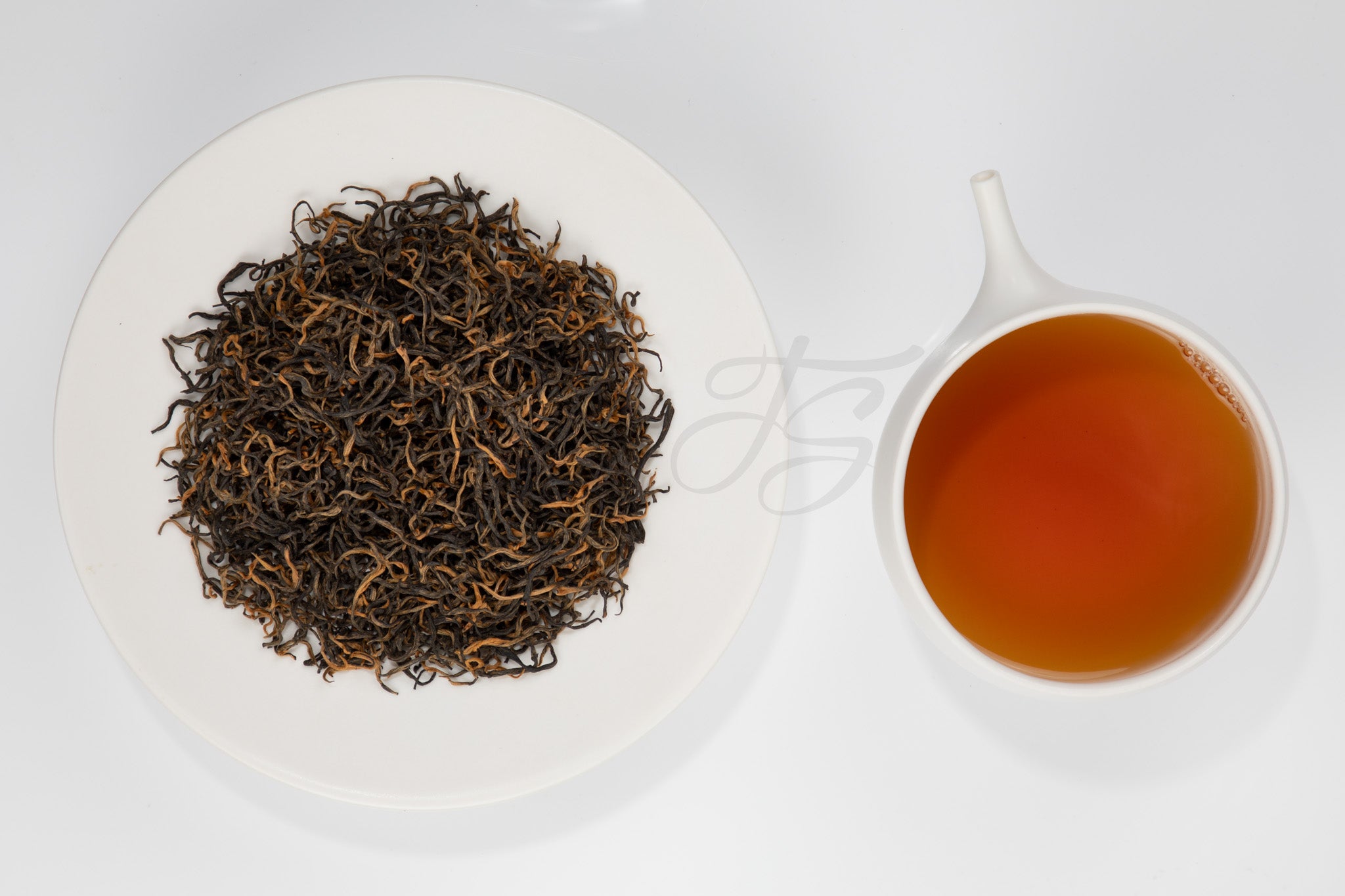Black Teas
Black tea, a popular beverage enjoyed by many around the world, has a rich history that can be traced back to the Ming Dynasty in China. Prior to this period, historical records do not mention the existence of black tea, making the Ming Dynasty a pivotal point in the development of this beloved drink.
In the twenty-fourth year of Hongwu in 1391, Emperor Zhu Yuanzhang of the Ming Dynasty made a significant decree that halted the production of "dragon and phoenix tea cakes." This decision was made in order to alleviate the burden on the people and instead promote the cultivation of tribute bud teas, sparking a shift towards loose tea production.
It was during this time that tea fermentation technology emerged, revolutionizing the way tea was processed and leading to the creation of black tea. Wuyi Mountain, located in Fujian province, played a crucial role in the development of black tea, particularly Lapsang Souchong black tea. This region, known for its dragon and phoenix tea cakes, adopted tea fermentation technology, giving rise to the production of black tea.
Four hundred years ago, the nations of Europe, including the British, Dutch, and French, were captivated by the allure of Chinese tea. In particular, Souchong black tea from the Wuyi Mountain region of China emerged as a symbol of Chinese black tea excellence on the global stage. The British, in particular, developed a deep affinity for Chinese teas, with many authors and playwrights of the time expressing their admiration for these beverages in their writings.
One such figure, the renowned Irish playwright George Bernard Shaw, famously proclaimed that "Black tea is the catalyst of inspiration!". This sentiment underscores the profound impact that Chinese black tea, particularly the black tea, had on the creative and intellectual pursuits of individuals across Europe during this period. The British, in particular, found solace and warmth in the consumption of Chinese black tea, making it an integral part of their daily lives.
Black tea, originally produced in China and known as 'red tea' by Chinese people, has a rich history and cultural significance in the country. Yunnan Sunlight black tea is produced by hand-plucking during summer from the tea plants of the Assamica variety in Yunnan province. These tea plants are cultivated at an altitude of more than 2000 meters on terraces, where the climate of rainfall, sunlight, and mist create the perfect environment for their growth.
One of the most well-known black teas from Yunnan province is Yunnan Sunlight black tea, which is dried in the sun using traditional processing methods. This tea exemplifies the unique characteristics of Chinese black tea, with its full-bodied flavor and aromatic notes. While in the mainstream market, black teas are commonly roasted by machines to stop oxidation, the Yunnan Sunlight black tea offers a different and distinctive taste experience.
For centuries, the art of making sun-dried black tea in Yunnan has been a closely guarded tradition passed down from generation to generation. However, over time, this unique processing method was almost lost due to lack of popularity among consumers in China. With the recent resurgence of interest in traditional teas, the sun-dried black tea has made a comeback after extensive testing and experimentation to enhance its flavor profile.
The key to producing premium quality black tea lies in two crucial factors. Firstly, the quality of the tea leaves themselves, which must be carefully chosen from specific mountain locations to ensure optimal taste. Secondly, the oxidation process is of utmost importance in determining the final flavor of the tea. Too much oxidation can result in a stale taste, while too little will lead to a strong green flavor.
One of the challenges in making sun-dried black tea is the reliance on natural sunlight for drying the leaves. This means that the process is highly vulnerable to weather conditions, and any unexpected rain can ruin an entire batch of fresh leaves. Despite these challenges, the dedication of tea makers to preserving this ancient craft has led to the revival of sun-dried black tea as a beloved beverage once again.
When it comes to black tea, aging plays a significant role in enhancing its flavor profile. Many tea enthusiasts believe that Yunnan Sunlight black tea tastes the best after aging for at least five years. This is especially true for this black tea that is similar to raw Puer tea, as the aging process allows the flavors to mellow and develop complexity over time.
It is important to note that not all black teas benefit from aging. Some varieties may lose their freshness and vibrancy if left to age for too long. However, for teas that are well-suited to aging, such as raw Puer-style black teas, the results can be truly exceptional.

